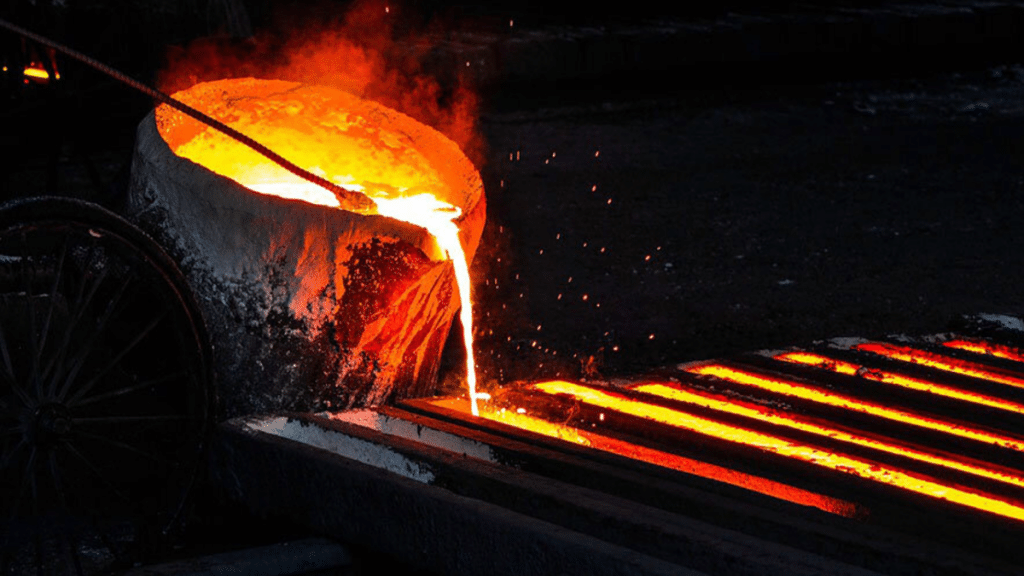Metal casting has been a cornerstone of industrial manufacturing for centuries. However, its transformative impact on the automotive industry in recent decades has been nothing short of revolutionary. Modern metal casting techniques, such as investment casting and die casting, are reshaping how automotive components are designed, produced, and integrated. For manufacturers like CFS Foundry, these advancements are paving the way for lighter, stronger, and more efficient vehicles.
The Evolution of Metal Casting in Automotive Manufacturing
Traditionally, metal casting was used to create simple, robust components such as engine blocks and transmission cases. With advances in technology, the role of casting has expanded significantly. Today, casting processes are utilized for creating intricate parts with high precision, meeting the demands of modern vehicle design.
Metal casting is crucial in addressing challenges like weight reduction, enhanced performance, and sustainability—all critical aspects of the automotive industry’s evolution. By adopting advanced methods like investment casting and die casting, manufacturers can achieve remarkable precision and efficiency.
Investment Casting: Precision Meets Performance
Investment casting, also known as lost-wax casting, has gained prominence in the automotive industry due to its ability to produce complex geometries with tight tolerances. This process involves creating a wax model of the component, coating it in a ceramic shell, and then melting away the wax to leave a mold. Molten metal is poured into this mold to create the final product.
Advantages of Investment Casting in Automotive Applications:
Design Flexibility: Intricate shapes and thin-walled components can be produced without compromising strength.
Material Versatility: A wide range of metals, including aluminum, steel, and titanium, can be cast using this method.
Reduced Post-Processing: Investment casting produces components with near-net shapes, minimizing the need for machining.
Enhanced Durability: The process results in dense, defect-free components that can withstand high stresses and temperatures.
Applications in Automotive Industry:
Turbocharger components
Exhaust manifolds
Brackets and housings for electronic systems
Die Casting: Speed and Efficiency
Die casting is another critical process transforming the automotive industry. This high-pressure casting method involves forcing molten metal into a steel mold cavity. Once the metal solidifies, the mold is opened to eject the component.
Benefits of Die Casting:
High Production Rates: Die casting is ideal for mass production due to its rapid cycle times.
Excellent Surface Finish: Components often require minimal finishing, reducing costs.
Dimensional Accuracy: Die casting achieves tight tolerances, ensuring parts fit perfectly within assemblies.
Lightweight Solutions: By using lightweight metals such as aluminum and magnesium, die casting contributes to weight reduction in vehicles.
Applications in Automotive Industry:
Engine blocks
Gearbox housings
Structural components such as shock towers and cross members
How Metal Casting is Driving Automotive Innovation
1. Lightweighting for Improved Fuel Efficiency
Reducing vehicle weight is a top priority for automotive manufacturers to meet stricter emissions standards and enhance fuel efficiency. Advanced casting methods enable the production of lightweight components without sacrificing strength or durability. Materials like aluminum and magnesium are increasingly used in casting to achieve this goal.
2. Enhanced Safety and Performance
Metal casting allows for the integration of complex geometries and functional enhancements in components. For instance, cast parts with internal cooling channels improve heat dissipation in critical systems like brakes and engines, enhancing overall performance and safety.
3. Electrification of Vehicles
As the automotive industry shifts towards electric vehicles (EVs), metal casting is playing a pivotal role. Investment casting and die casting are used to produce lightweight and thermally efficient components for EV powertrains, battery housings, and cooling systems.
4. Cost Optimization
By reducing material waste and minimizing machining requirements, modern casting methods help manufacturers achieve significant cost savings. This efficiency is crucial in making advanced vehicle technologies accessible to a broader market.
CFS Foundry: A Leader in Automotive Casting Solutions
As a trusted manufacturer, CFS Foundry specializes in delivering high-quality investment casting and die casting solutions for the automotive industry. Leveraging state-of-the-art facilities and a skilled workforce, CFS Foundry produces components that meet the most stringent quality standards.
Why Choose CFS Foundry?
Extensive Expertise: With years of experience in casting, CFS Foundry has a deep understanding of automotive requirements.
Advanced Technology: The company employs cutting-edge equipment and techniques to ensure precision and consistency.
Custom Solutions: CFS Foundry works closely with clients to develop tailored solutions that meet specific project needs.
Commitment to Sustainability: By optimizing processes and materials, CFS Foundry contributes to eco-friendly manufacturing practices.
Future Trends in Metal Casting for Automotive Applications
The future of metal casting in the automotive industry looks promising, with emerging trends set to drive further innovation:
Additive Manufacturing Integration: Combining 3D printing with traditional casting methods allows for rapid prototyping and reduced lead times.
Smart Casting Processes: The integration of IoT and AI technologies in casting processes enhances quality control and production efficiency.
Sustainable Materials: The use of recycled metals and eco-friendly alloys in casting aligns with the industry’s push towards sustainability.
Greater Collaboration: Partnerships between foundries like CFS Foundry and automotive manufacturers will result in the co-creation of innovative solutions.
Conclusion
Metal casting is not just a manufacturing process; it is a catalyst for transformation in the automotive industry. By enabling the production of lightweight, durable, and complex components, casting methods like investment casting and die casting are helping automakers achieve their goals of efficiency, performance, and sustainability.
Manufacturers like CFS Foundry are at the forefront of this evolution, delivering innovative solutions that meet the demands of modern automotive engineering. As the industry continues to evolve, metal casting will remain a vital tool in shaping the vehicles of tomorrow.
